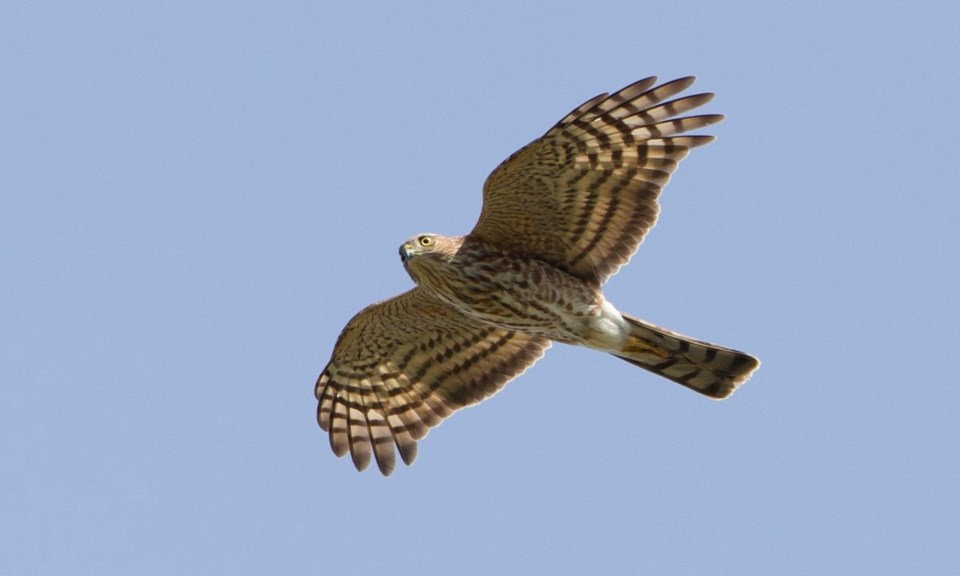Birdwatchers and nature enthusiasts alike will have a chance to learn about North America’s smallest falcon and the ongoing effort to keep the species numerous and healthy this Friday, March 15 at the Kiwanis River Park Pavilion & Lodge.
Hosted by Nature Moose Jaw, the upcoming presentation is called “American Kestrels: Learning from North America’s Smallest Falcon,” and will be delivered by guest speaker Todd Smith starting at 7 p.m.
Smith is the president of the Moose Jaw Wildlife Federation and a teacher at Ecole Ducharme, and he’s actively involved in kestrel conservation in the Moose Jaw area. Some of his recent findings from the establishment of several large birdhouses in the area will be revealed during his upcoming presentation.
“(Smith and his students) have a bunch of Kestrel houses put up in the area – nest boxes – and they monitor them and keep track of them,” explained Rich Pickering, the president of Nature Moose Jaw.
The upcoming presentation will touch on the conservation of kestrel falcons, provide details about the ecology of the falcon species, and explain insights from monitoring the nest boxes erected in the area.
“They (kestrels) are in the falcon family – they are the smallest of the falcons in North America,” Pickering explained.
Ranging in size from between a blue jay and a mourning dove, kestrel falcons have a habitat spanning from North America down to the southernmost tip of Argentina.
The American kestrel is commonly used in falconry, and typically hunts insects, mice, small birds, and hunts in an energy conserving manner by perching and ambushing its prey.
Kestrel falcons typically reside in hollow parts of large, older trees. Due to environmental constraints from human development, climate change, and other factors, many of these trees are becoming scarce, thereby posing a threat to the species.
“Nest boxes provide a place (for the falcons to live) as that habitat slowly starts to disappear,” Pickering said.
Pickering said a number of these nest boxes have already been installed in the area by Smith and his team.
“I just know if you’re driving down (the street) and you see this great big bird house on a telephone pole, that’s one of his.”
For the time being, events will be held at the Kiwanis Lodge on the upstairs level. The indoor facility allows the events to take place year-round, but venue options for Nature Moose Jaw may change in the future.
The Kiwanis River Park Pavilion & Lodge is next to the skating oval and can be found by following River Drive into the Wakamow Valley.
Further events will be planned on a once-a-month basis and will take place on the third Friday of each month. All presentations are currently free to attend, and everyone is welcome to stop by.
To contact Nature Moose Jaw, Rich Pickering can be reached at [email protected].
For more information about the Moose Jaw Wildlife Federation and its conservation efforts, visit the federation’s Facebook page, ‘Moose Jaw Wildlife Federation,’ or its website at MJWildlife.ca.




